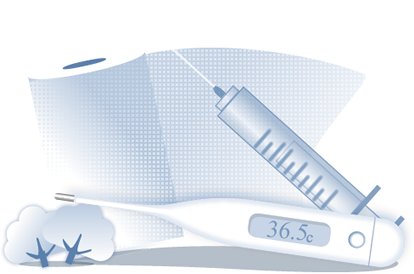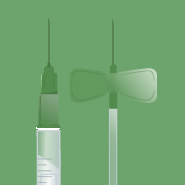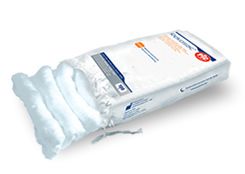
Belonephobia: who has a fear of needles?
About 10% of the population has a fear of needles and pins. Psychotherapy deals with other phobias, like one of spiders, with a course of treatment that involves gradual exposure to needles. What does that mean? That you fight the fear of needles with needles.
Belonephobia is the phobia of needles, with behaviour that can result in not just a hysterical intolerance of them, but also sometimes fainting. In most extreme examples, belonephobia isn't just limited to a fear of hypodermic needles, but also of pins, toothpicks and sharp knives. It affects up to 10% of the population, but it's a type of phobia that can be overcome with the traditional approach in psychotherapy that's used for other similar behavioural disorders. One example? Arachnophobia.
Relaxation and exposure help to defeat the fear of needles
Behavioural therapy for the fear of needles includes 2 stages: the first is acknowledgment of the problem and an in-depth use of relaxation and control techniques, and the other, final stage is an exposure to the needles themselves. The recommended treatment involves a course of psychotherapy of 4 months at the most.
Fight the fear of needles with needles
Once the individual case of needle fear has been assessed, the stage of being exposed to needles starts, which is done very gradually. Having to confront the needle face-to-face is based on the behavioural theory that it's the things that cause the fear themselves in the first place that can cure it. At first the needle is far away or viewed in a photograph. This introductory phase lasts until you are used to needles. Then the patient is exposed to an object that induces anxiety, and so on in a predetermined order, until the objects to which he is exposed are much more difficult. According to the same behavioural theory, this type of exercise "neutralizes" the fear of needles in 90 - 95% of cases (a good percentage!).
And what if the fear of needles persists?
If the course of behavioural therapy doesn't work (and that can happen) and the fear of needles continues to be strong, belonephobia can often be dealt with - before the procedure - by administering drugs, like sedatives, or by applying anesthetizing creams to the injection site. In that case, the injection will need to be done in a clinic with specialized staff.









